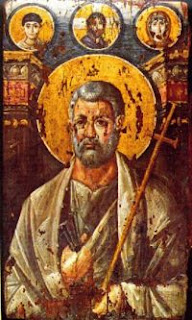A: These stories and their accompanying proverbs are the bulk of what the odu of the diloggún are. They relate to divination because it is by the diviner’s interpretation of them, and the character or characters that might represent the client in the stories, that he interprets that Odu that has fallen. One can memorize tons of “meanings” for each sign, but without the knowledge of the Patakís from which those meanings are derived, they become something stagnant and sterile. Knowledge of Patakís increases the diviner’s understanding of the sacred energies invoked in a divination session.
Q: How does divination in Santeria differ from say, Tarot, Runes or I Ching?
A: The Diloggún, Tarot, and I Ching share one thing in common: they are systems of divination whose goal is to shed light on the uncertain – that uncertainty being the future. The Diloggún and I Ching share another similarity – they are a part of a region’s native spirituality. All similarities, however, end there. The Diloggún not only tells us the future, it also tells us how to change the future that is coming if it is something dark and dangerous.
It does this by identifying the Orishas with whom we resonate, and the Orishas to whom we must make Ebó to succeed in life. The Diloggún gives us proverbs upon which to meditate and stories through which we unravel our place in the universe. And while work with Tarot and I Ching can be performed outside of a religious system, the Diloggún is the oracle of the Orishas. It is impossible to separate it from the spirituality that nourished it. This, I think, is the greatest difference between these three systems.
Q: What role does divination play in Santeria?
A: Divination is one half of the religion, the second half being worship; and both are inseperable. Worship of the Orishas takes many forms. There is the worship given daily in the home by the Priest and Aborisha alike, the pouring of water and giving of prayers recited to Olódumare, Elegguá, Egun, (the dead) and one’s guardian orisha. Done to cool the divinities, they, in turn, cool the worshiper so that the day is blessed.
There is the weekly worship of Elegguá, fate, destiny, the opener of all roads; on Mondays, he is propitiated and plied with offerings of wine, rum, and cigars. There is the weekly worship of one’s patron when he or she is refreshed with special oils, prayers, and libations. Orisha Priests and Priestesses will present a wide array of meats, drinks, and thanksgiving offerings throughout the year on behalf of other aleyos and initiates.
Votive offerings are made infrequently, as are propitiatory sacrifices. Finally, there is the yearly or anniversary offering of the Ilé when initiates and godchildren come together to drum, dance, chant, and sing on the holy day of any one Spirit. Worship easily becomes a daily, weekly, monthly, and yearly affair for the faith’s adherents.
The second aspect of Santería, divination, is grossly misunderstood, sometimes even by those who adhere to its practices. People in all ages and cultures have sought shades of the future, desiring knowledge of what is to come. Indigenous pagan practices have always incorporated the art of divination in their religions; from the Greek oracle at Delphi to the Ogham of the Celts, its arts were a part of, and not separated from, religion.
In today’s New Age movement, however, divination is often an act performed outside one’s spiritual faith. No longer are gods, goddesses, or spirits consulted. Some patronize fortune-tellers and psychics, hoping to glean the inner intentions of a lost, forlorn lover, while others seek a quick peek at career and prosperity goals.
There are those who use “spirit guides” in their consultations. Although this is closer to those African spiritual systems that survived in the Mother Continent, many still credit the entire act of divining to the auspices of the higher, inner self; and this is anathema to African beliefs.
Simply, at its core divination tells us how to best worship the orishas, and that worship then fulfills the divination done. It is an active, never ending process for those in the faith.
"When my head is on my shoulders, my feet in salty water, and my thoughts extend beyond the horizon, there is no doubt in my mind that I stand facing the ocean." From the Odu Unle Meji.




No comments:
Post a Comment
Comments